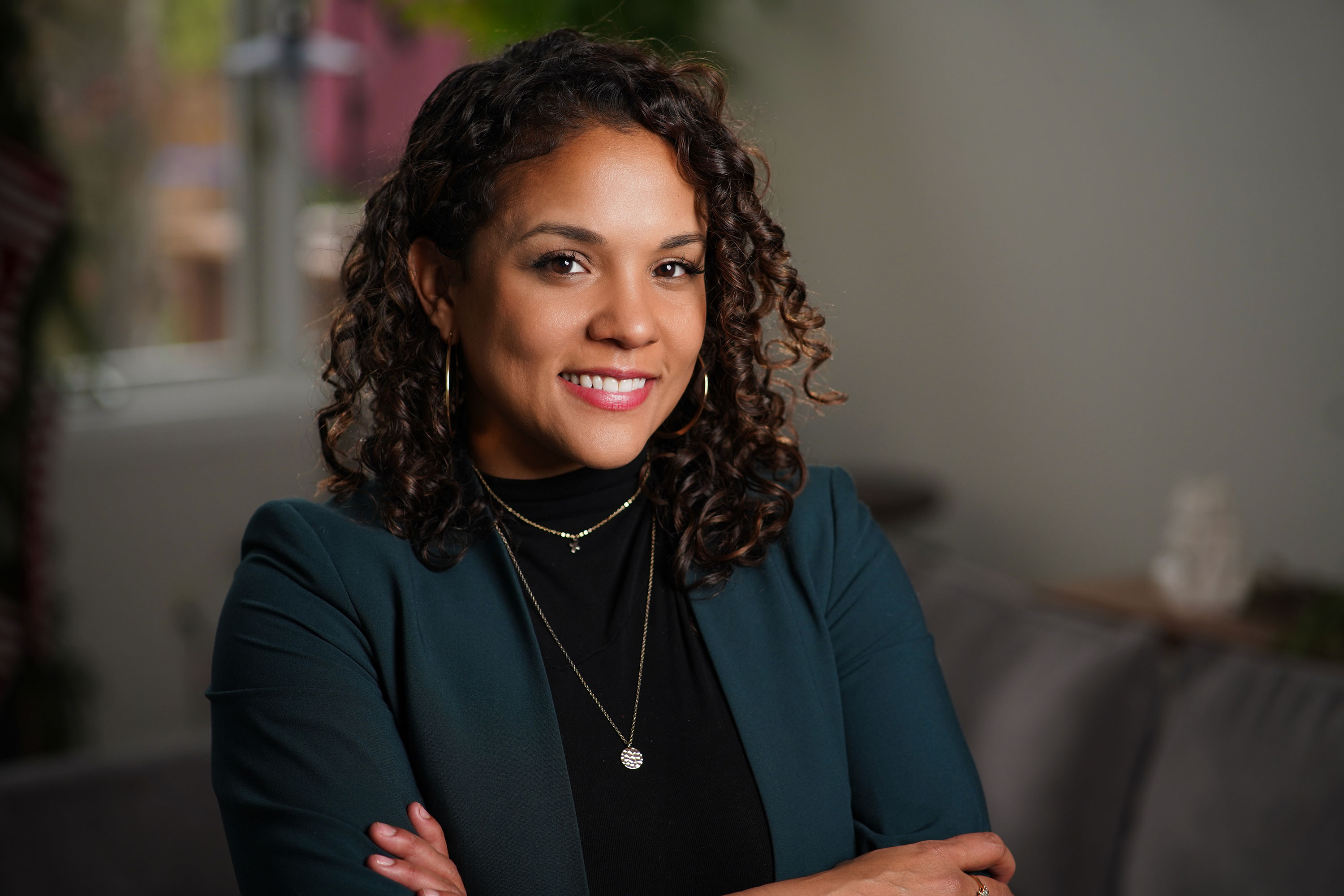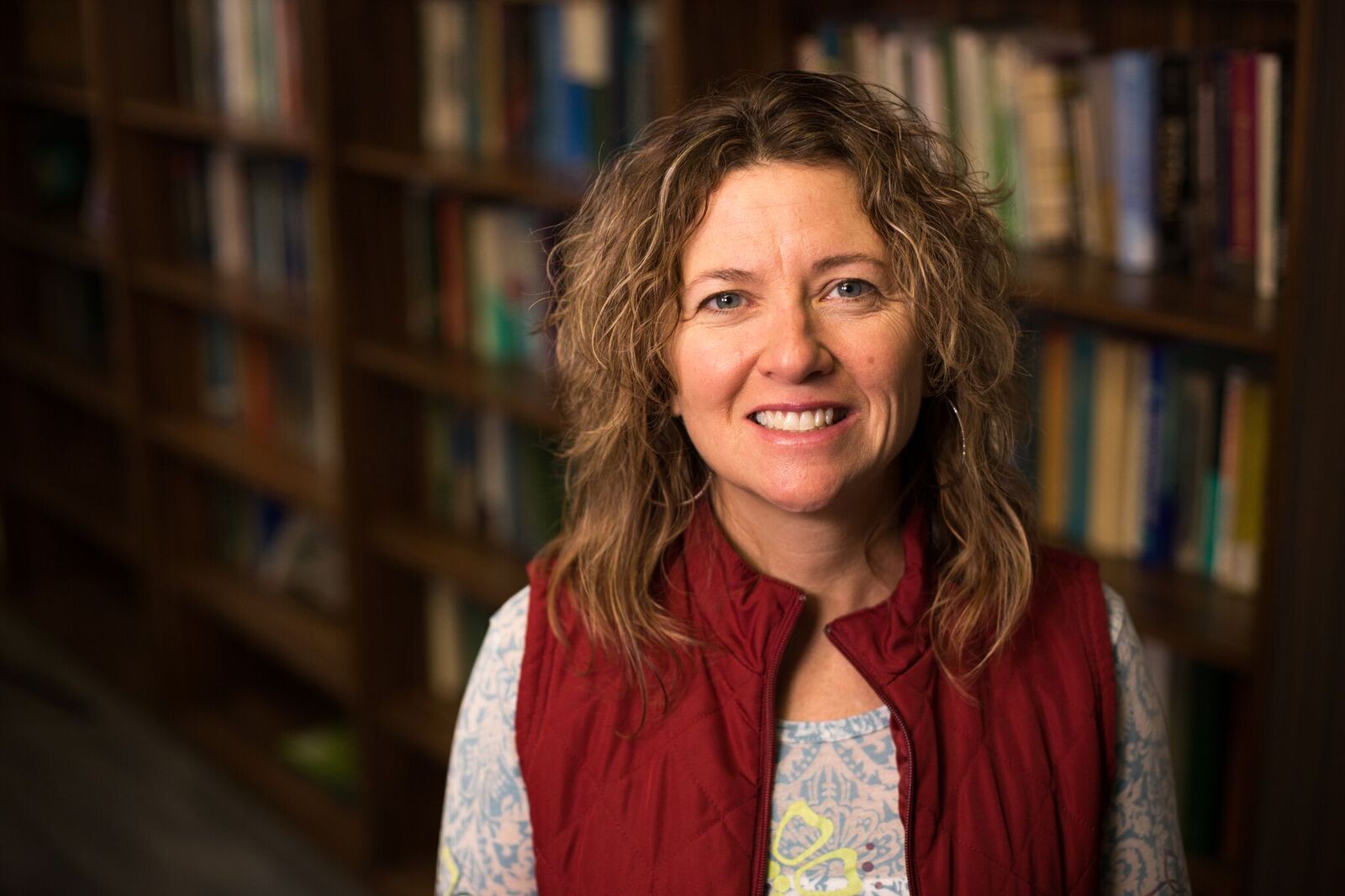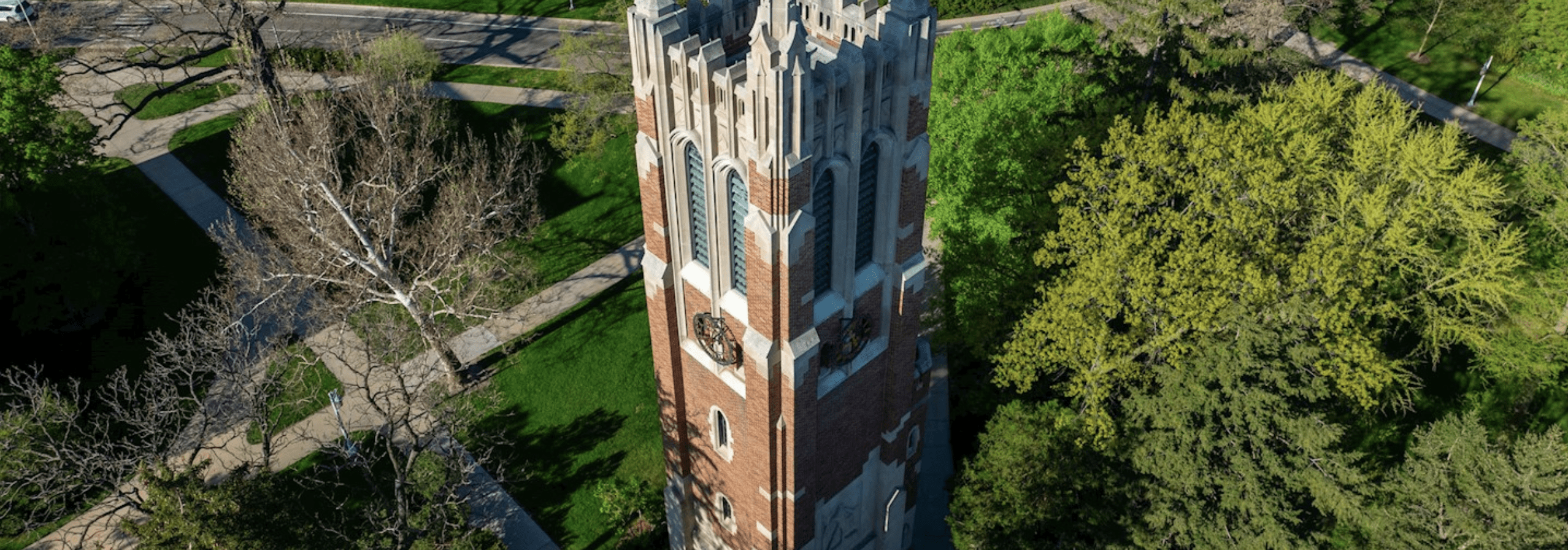Researchers in the Michigan State University College of Communication Arts and Sciences have been recognized as top scholars in the field of communication.
Danielle K. Brown, a journalist and researcher who uses her craft to foster racial justice, and Maria Lapinski, a leading scholar of health and risk communication, recently received honors from the International Communications Association, or ICA, which aims to advance the scholarly study of communication by encouraging and facilitating excellence in academic research worldwide.
Danielle K. Brown
Brown, 1855 Professor of Community and Urban Journalism in the School of Journalism, was recognized as the Early Career Scholar by the ICA. She is MSU’s first recipient of this award, which honors a scholar no more than seven years past receipt of their doctoral degree. The recipient’s existing body of work must contribute to knowledge of the field of communication and show promise for continued development.
Brown, who is the founding director of the LIFT Project, short for Leaders Invested in Fostering Trust, was a strong contender.

“The LIFT Project focuses on trying to attack disinformation and misinformation about Black communities by creating new tools for journalism and newsrooms,” Brown said. “We work with communities around the Midwest to help understand their needs and desires around news and information and the spaces in which they think journalism might be able to bring news to them where they are. From there, we audit news coverage and identify spaces where journalism can fulfill the needs of the communities that are underserved or underrepresented.”
The project started in Minneapolis, where George Floyd, a 46-year-old Black man, was killed by a white police officer on May 25, 2020. The incident captured global attention as one of the most shocking and high-profile cases of police brutality in years.
Brown moved to Minneapolis just a week later.
“After his murder, I was thinking about narrative change around protest, because that’s what my core research was about for many years,” Brown said. “I realized that traditional training to fix the problem wasn’t going to actually work very well, and so I was inspired to think more radically about our orientations for change in media and to center communities when trying to make a difference.”
Brown’s interdisciplinary and community-engaged scholarship focuses on the cross-sections of journalism, political science and sociology. She specializes in analyses of media representations and narrative change, social movements and activism and identity and political psychology. Brown has published dozens of articles in top-tier journals, and her work also appears in popular media outlets like Nature, Scientific American, Nieman Lab, Columbia Journalism Review and the Conversation.
The ICA selection committee judges an early career scholar candidate on the “strength of their published work, including its conceptual foundation and argumentative clarity, on the scholar’s productivity at a given career stage, on the rigor of the research produced so far, and on the promise of existing work serving as a springboard for continuing scholarship.”
“It’s a really fierce competition, and that that makes it pretty dizzying in my mind to know that I got it because people just do amazing work,” Brown said. “For me, to be able to have my work recognized at this level is something I never expected. As most people who study race and racism know, it’s a difficult subject to approach personally, but it’s also difficult to publish about it. So, it’s an honor to know that my work made an impact.”
Maria Lapinski
Lapinski, professor of communication and director of the Michigan State University Health and Risk Communication Center, or HRCC, has been named a fellow of the ICA.
ICA Fellows are honored for their distinguished scholarly contributions to the field of communication. MSU is home to the largest network of current and past ICA Fellows.

“This award recognizes a portfolio of scholarly work,” Lapinski said. “It’s focused on the research elements, but it also acknowledges teaching and service to the discipline and university.”
Lapinski, who also has an appointment with MSU AgBioResearch, studies how cultural norms and values shape communication processes and perceptions related to health and environmental issues.
As director of the HRCC, she leads a network of over 50 faculty members who engage in communication-based research, education and public engagement related to risk reduction and health promotion.
Lapinski’s research has been funded by organizations such as the National Science Foundation, World Health Organization, National Institutes of Health, U.S. Department of Agriculture, Robert Wood Johnson Foundation and the Carter Center. The Proceedings of the National Academy of Sciences, Human Communication Research, Health Communication, and Social Science and Medicine and others are among the journals that have published her work.
“Communication research is something I have been passionate about since my first research-based undergraduate class at MSU,” Lapinski said. “The ways in which people communicate with one another shapes all the decisions we make — from taking care of ourselves to protecting the environment around us. Understanding this process and putting that understanding into practice is what continues to excite me about research and why I love teaching so much.”
Despite the singular honor of being named an ICA Fellow, Lapinski is quick to appreciate that her work is largely a collaboration with her colleagues at the HRCC.
“I have almost no projects that I’ve ever done alone,” said Lapinski. “My career to this point has been really facilitated by the mentorship of my colleagues, my students, my family and friends. I didn’t get this award on my own. I got it with the help of so many people.”
This story was originally published by MSUToday.
About the MSU Innovation Center:
The MSU Innovation Center is dedicated to fostering innovation, research commercialization, and entrepreneurial activities from the research and discovery happening across our campus every day. We act as the primary interface for researchers aiming to see their research applied to solving real-world problems and making the world a better place to live. We aim to empower faculty, researchers, and students within our community of scholars by providing them with the knowledge, skills, and opportunities to bring their discoveries to the forefront.
Through strategic collaborations with the private sector, we aim to amplify the impact of faculty research and drive economic growth while positively impacting society. We foster mutually beneficial, long-term relationships with the private sector through corporate-sponsored research collaborations, technology licensing discussions, and support for faculty entrepreneurs to support the establishment of startup companies.
Is your company interested in working with MSU’s communications pioneers? Click Here.

